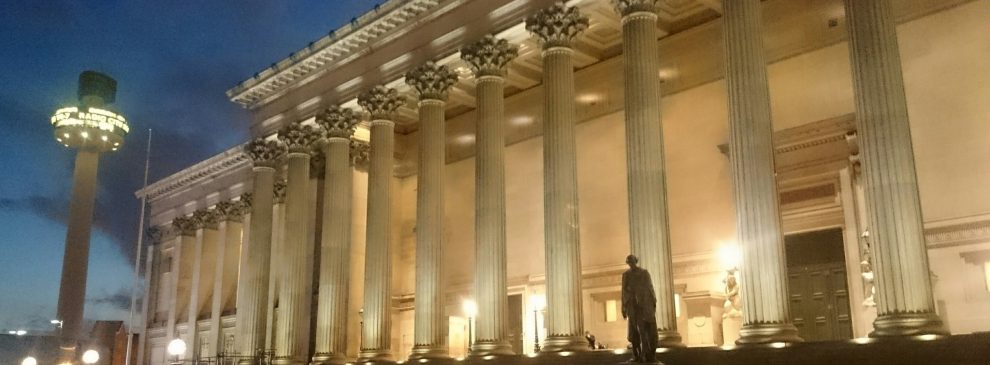Liverpool 08 to 18: a selective heritage?
Added on Friday, March 22nd, 2019
…
Liverpool’s UNESCO World Heritage Site (WHS) featured in the European Capital of Culture (ECoC) bid document in 2003, where it was used as a case study. (At this stage, Liverpool was on the ‘tentative list’ awaiting the UNESCO designation it received in 2004). As part of the actual ECoC programme in 2008, the Creative Communities, Heritage and Welcome Teams events also included several WHS-linked events which, crucially, if we look at the current proposed de-listing and placement of the site on the UNESCO ‘in danger’ list, included a number of educational and community-focused events. The importance of engaging the wider communities of the city and region, the potential of the UNESCO ‘brand’, and a concern with highlighting a perceived added cultural value of the WHS were therefore apparent.
The Impacts 08 research programme never really explored the theme of heritage, other than where it intersected with analyses on tourism, marketing and regeneration. For Impacts 18, the intention had been to conduct heritage-specific research, including interviews and document analysis, and to re-engage with the ICC 2013 WHS report. In the end, however, the theme of Liverpool’s heritage – its role, importance and values – runs inherently across all of the Impacts 18 research strands. In my Cultural Governance mapping work, for example, several stakeholders reflected on the missed opportunities afforded by the World Heritage site, and with this a perceived shift towards a focus on large events rather than an embedded policy or strategy towards embedded heritage assets. During focus groups conducted as part of the Neighbourhood Impacts project, community stakeholders likewise commented critically on the complexities of heritage and regeneration in the city, and the question of who might be left behind. In a more quantitative exploration, our work on Visitor Economy and Tourism shows how heritage is a key element of the region’s visitor economy. However, in an overview of key official cultural and economic strategy documents – from regeneration, economic and cultural policies and strategies through to wider marketing documents – it was found that the WHS is largely absent in any constructive way. Across the city’s marketing, cultural and tourism organisations, the status is haphazardly highlighted or else ignored; and crucially, there appears to be no cohesive approach to how it is presented.
The WHS was only meaningfully re-engaged with when it faced imminent UNESCO de-listing in 2017, leading to debates in the city, a ‘heritage taskforce’ and a new management plan. Yet a more fundamental shift is required here in terms of cultural, social and economic strategies. The Impacts 18 Cultural Governance research findings showed that cultural strategies in the city are often centred on large-scale events and that narratives or ‘city branding’ exercises largely exclude the values of the WHS. Regeneration and development in the city still fail to engage fully with the notion of intrinsic / extrinsic values; and perhaps most significantly, most discussion of heritage is often largely focused on the dockland area, overlooking the other areas of the WHS site (and indeed, intangible practices of memory and identity linked to these).
The perceived ECoC success and the WHS have in many ways needlessly developed different trajectories. Whilst one is preferred in ‘storying’ the city, the other has been interpreted as something problematic, or of lesser value. There is, perhaps, finally a sense that this may shift, with initiatives and projects that seek to develop digital and physical interpretation and foster youth engagement. The WHS is free and accessible to all people – resident and visitor alike – and it has the potential to speak to local memory as well as world history, connecting the city not only with the world but with its own selves, past, present and future.









